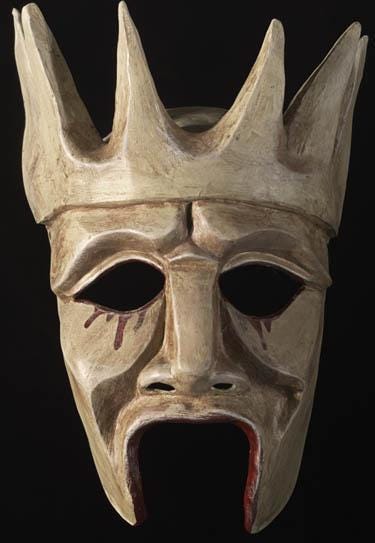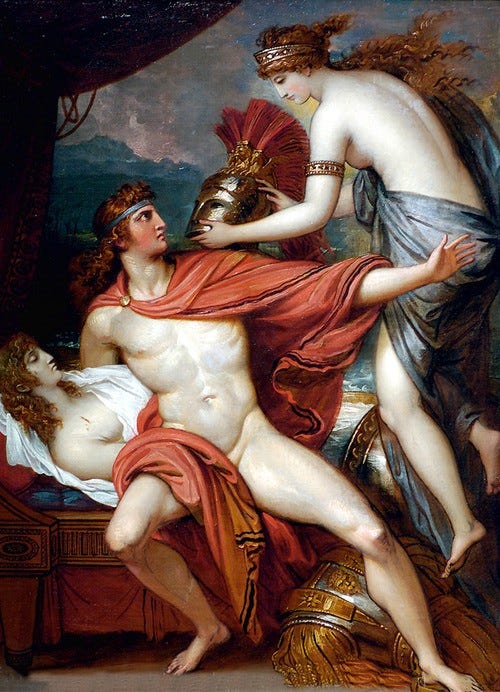Aristotle's Poetics
The Science of Art
Dear Classical Wisdom Reader,
Personally, I think it’s one of the great tragedies of modern education systems…
There’s a strong tendency to keep the world of the sciences and the arts very separate from one another, and to encourage people to specialize ever more within one field.
Of course, this can produce all manner of import and necessary work. Yet this kind of division would have been unheard of to the ancients. To them, philosophical and scientific inquiry were in essence the same thing.
So today we’re looking at Aristotle’s Poetics, an analysis of storytelling and Greek drama from one of the most important philosophical and scientific minds the world has ever seen.
Read on below to discover Aristotle’s key insights into literature, and just how storytelling, art, and drama are crucial to the human experience…
All the best,
Sean Kelly
Managing Editor
Classical Wisdom
The Science of Art: Aristotle’s Poetics
by Van Bryan
It is probably worth mentioning, before we get started on anything else, that The Poetics of Aristotle is sometimes looked upon with disdain and mistrust. A soul as unpoetic as Aristotle’s has no business speaking on matters of drama and art, let alone telling poets how it is they ought to be going about their business!
Aristotle, some contend, reduces the art of tragedy down to its language, and then reduces the language even further with his disconnected, almost aloof, examination and contemplation. Such philosophical, investigative methods that are common of Aristotle might be fine and dandy for metaphysics, epistemology, maybe even politics. But the theatrical arts? Never!
However, we must believe that Aristotle had great respect for the theatrical arts. Specifically he had great respect for the arts of tragic theater and epic poetry, both of which he speaks of at length within his Poetics.
Indeed, Aristotle so respected the old masters of Greek poetry and theater that it is believed that he personally edited a copy of the Iliad for his student Alexander the Great, who reportedly carried it with him all over the world. Additionally, Aristotle believed that Sophocles’ Oedipus Rex was the best example of tragic theater and refers to it again and again within the course of his book.
Therefore we must ignore the people who decry Aristotle for his foray into poetics. We sane individuals can see Poetics for what it truly is- a critical examination and interpretation of an essential art form; it is a treatise that, even to this day, provides us with one of our best understanding for the structure and function of a universal institution, that of storytelling.
And if you are an aspiring playwright or screenwriter, then you might do well to read Poetics. There are all sorts of tips that you could make use of.
Within Poetics, Aristotle writes extensively on what makes a tragedy good and a story appealing.
For instance, when writing a tragedy, you ought to make use of Peripeteia (περιπέτεια), or a sudden change in fortune. Think of Leonardo Dicaprio getting on board the Titanic and falling in love with Kate Winslet. Pretty good! Then the Titanic hits an iceberg. What a terrible change in fortune!
A good tragedy also tends to include Anagnorisis (ἀναγνώρισις), or a moment in the story when a character makes a startling discovery.
Today we won’t be looking so much at what Aristotle says makes a good tragedy, what elements must combine to create a compelling narrative. Rather, we will look at a much more important question. Why should we care about tragedy? What is the end goal of theatrical storytelling?
Put simply, if a bit more broadly, what’s the point of art?
The blockbuster art form of the day was live theater. Men like Sophocles, Aeschylus, and Euripides would have been household names during the days of Aristotle. The philosopher defined this culturally significant medium of storytelling as…
…an animation of an action that is serious, complete and of a certain magnitude; in language embellished with each kind of artistic ornament, the several kinds being found in separate parts of the play; in the form of action not of narrative; through pity and fear effecting the proper purgation of these emotions. -Aristotle (Poetics, Chapter VI)
The final sentence of this definition is what is of supreme importance to us. Aristotle says that a proper tragedy must elicit both fear and pity. Moreover, a tragedy will, ideally, purge us of these emotions.
Some commentators have suggested that Aristotle listed pity and fear as the first two emotions in an assumed list. That is to say that some people believe that Aristotle means that a tragedy should elicit fear, pity, anger, etc.
I believe we can reject this possibility. Aristotle was not a man to pick his words capriciously. If he writes that a tragedy needs to elicit fear and pity, then that’s just how it needs to be!
It is also important to know that a tragedy must elicit fear AND pity and not one or the other.
We do have genres that elicit one emotion and not the other. A play or film that elicits only pity is usually referred to as a “tear jerker”. The genre that elicits only fear might be considered the horror or slasher genre (think The Texas Chainsaw Massacre).
The former type of story is typically more popular with an older audience, people who have had the opportunity to experience life and who would benefit from purging the regrets of their life in an outpouring of uncontrollable pity.
Horror is perhaps more popular with a younger audience. Teenagers, for instance, are at a point in their lives when they are consumed by uncertainty and fear. The anxieties of adolescence can be directed towards something external, grotesque, and ultimately ridiculous in an attempt to “clear the air”, so to speak.
However, horror and tearjerkers are ultimately insufficient. They do not, in short, elicit the “tragic wonder” which Aristotle describes as the end and ultimate goal of tragedy and art in general.
You would not describe your feelings after watching A Nightmare on Elm Street as “emotionally or spiritually transcendent.”
It is only at the intersection of fear and pity that we experience the tragic wonder, that all-important catharsis.
Now we are getting to the heart of things.
The idea of catharsis is perhaps misunderstood in the English language. The English word does not possess all that is contained within the Greek. While we might believe catharsis means to rid or purge ourselves of something, in ancient Greek the word would actually mean to rid or purge ourselves of the baser or worse aspects of something. With this in mind, we begin to see that catharsis is more inline with purification, not necessarily purgation.
You see, human beings are naturally hard-hearted. We often do not give pity where pity is due. When it comes to fear, we have the tendency to either exaggerate our fears or suppress our fears all together. Neither of these are marks of the excellent person.
The tragic catharsis then is a way for us to purify our minds and souls and to understand truths about suffering, loss, misery, adversity, and redemption.
Within the Iliad, we witness Hector crying out to the gods, “Let me not then die ingloriously and without a struggle…” and we instantly identify and appreciate the human instinct to combat our inevitable, unforeseeable demise.
In Oedipus Rex, we read the lines:
“Let every man in mankind’s frailty consider his last day; and let none presume on his good fortune until he find Life, at his death, a memory without pain,”
In doing so we recognize the miseries of life and how they can so often befall us.
And here we have the goal of tragedy and art in general. It is meant to purify us, to make us better and to allow us to understand significant and universal truths. And there it is-truth! It’s the battle cry of all philosophers and the death knell of ignorance.
When reading Poetics with Aristotelian philosophy in mind, we tend to see things fall into place. Aristotle believed that all things have a final cause, a goal at which they aim. The final cause of a human being is to be happy and to be in harmony with virtue and knowledge.
Tragedy then is a way for us to attain this final cause, this goal of life. When we witness the horrors of Oedipus Rex or read the unfolding tragedies of the Iliad we are moved and impassioned by their beauty and expressions of the miseries of life. We are transcended, forced to confront the naked truths that we so often ignore.
Tragedy, therefore, allows us to partake in wonder, and we are better off because of it.






Lovely piece. I did not appreciate that catharsis was more to do with purification than purgation.
The opening, lamenting separation of arts and sciences in education, resonates with me. I’m happy to report that at least in some circles, the focus upon STEM (science, technology, engineering and mathematics) and their integration has been broadened to STEAM, the extra ‘A’ being for the arts. This is meant to put more focus on creativity in these fields.
Beautiful and instructive essay.